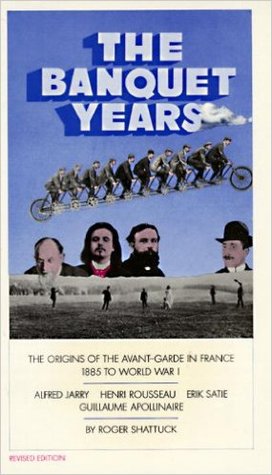I tend to go back to The Great Gatsby every few years and it does always bring me something different. This time, I approached it with the news that the novel has entered the public domain, so I might do whatever I’d like with the text. My firsty impulse is to write a play from Daisy’s point of view.
But when? There’s a scene to be written, that would take place within the continuity of the novel, that takes place after the first meeting of Daisy, Tom, Nick and Jordan. Does Tom realize what an ass he’s made of himself? Could he? Daisy does. She calls him “hulking,” (and not for the first time and Tom hates it.)
Is Nick so innocent? He’s judgmental and by the end of the book, he’s proudly judgmental, remarking snidely that Tom can be rid of his midwestern priggishness. There’s an indictment of the libertine East. Nick is judgmental and sure of his own honesty (at least at the start of the summer). When he meets Jordan he can’t place what it is he remembers about her, but then it’s revealed that she’d cheated during a golf tournament.
Nick’s writing a book, or at least a journal. Is Nick’s book every published? Would Daisy have read it? Is Daisy, lumped in with Tom as careless and irresponsible, fairly treated? She fell in love with Gatsby who was, at the time, in no position to marry her. He was penniless, we learn. When Gatsby meets Wolfsheim and embarks on his success through the criminal underworld, he is so malnourished that he eats “$4 worth of food in half an hour.” He could not have cared for Daisy and, we’re told, he was dishonest with her about that. She had no idea why Gatsby dissapeared on her, when they met and fell in love five years before the book begins.
So, Daisy’s crime is that she married another eligible suitor? Well, her other crime is hitting Tom’s lover Myrtle with her car, though there’s no indication she did it on purpose. Myrtle leapt in front of the car, thinking it was Tom’s, after all. Had Nick been driving, he also might have hit her.
But Nick never seems to think that Daisy should be held responsible for the accident. He only grows angry with her when she doesn’t turn up for Gatsby’s funeral. Nick holds Tom and Daisy responsible for Gatsby’s death. Tom is responsible. Myrtle’s husband Wilsonmurders Gatsby after Tom tells him that Gatsby owns the car that killed his wide and is the man who had made Myrtle his mistress. But is Daisy responsible for that? Did she even have a choice.
So I wonder, after this rereading, if Daisy ever read Nick’s book, what she thought about it, learned from it, or didn’t.







